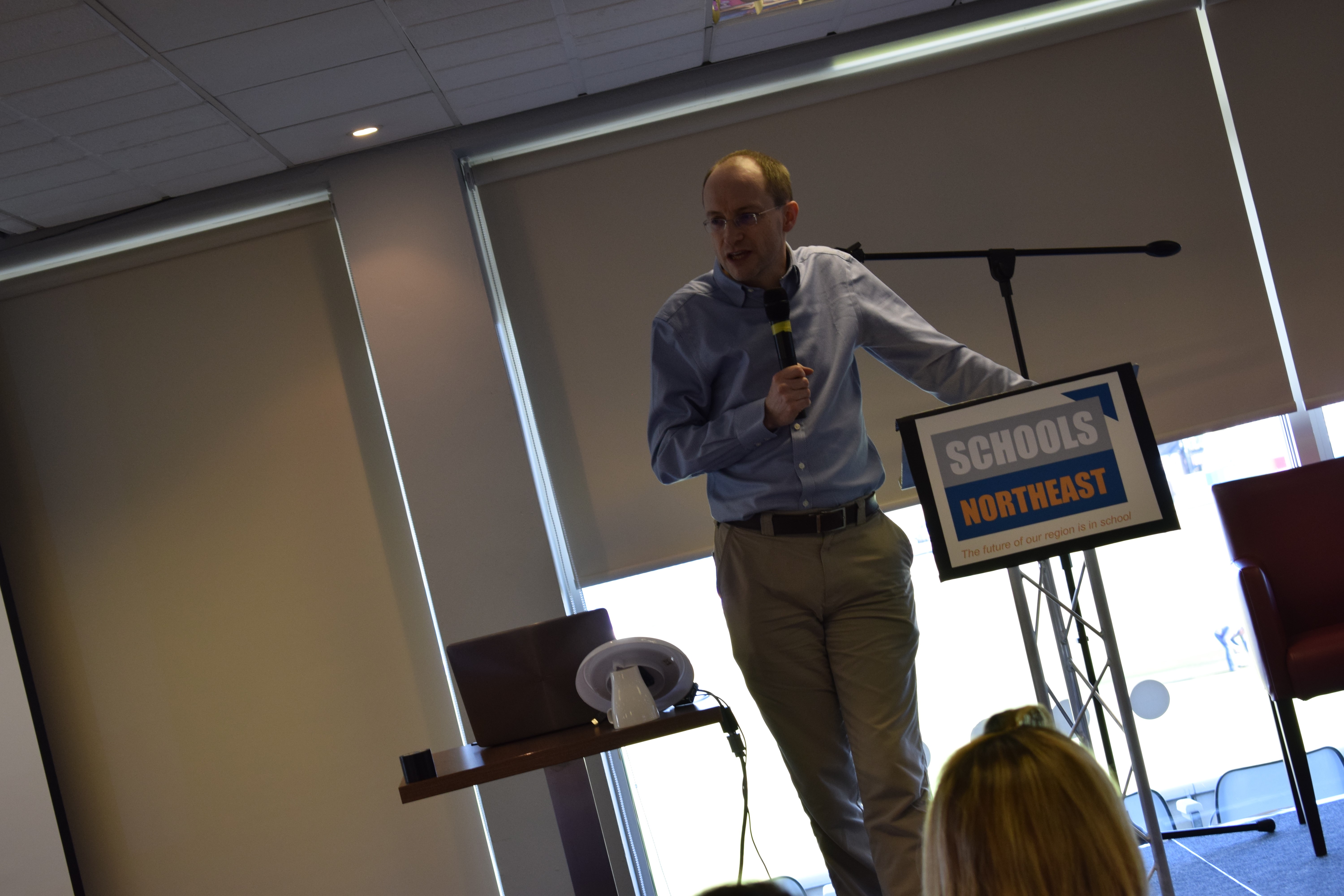Experts present brand new research at North East evidence-based education conference
The White Working Class conference, the first in a series of SCHOOLS NorthEast events around evidence-based education, took place today at the Durham County Cricket Club and brought together 100 school delegates from across the region.
 In his wide-ranging keynote address, Professor Stephen Gorard, a former teacher who is now Professor of Education at Durham University, told delegates that whilst white working class pupils make up a large proportion of the North East’s pupil population, it might also be a red herring. The evidence shows that there is a great deal of variation within ethnic groups and that labelling and categorising pupils may not be a particularly helpful approach.
In his wide-ranging keynote address, Professor Stephen Gorard, a former teacher who is now Professor of Education at Durham University, told delegates that whilst white working class pupils make up a large proportion of the North East’s pupil population, it might also be a red herring. The evidence shows that there is a great deal of variation within ethnic groups and that labelling and categorising pupils may not be a particularly helpful approach.
 Professor Gorard also noted that identifying “working class” pupils can be difficult due to “imperfect” existing social measures. Free School Meals is commonly used as a proxy for deprivation, but this does not pick up all pupils from deprived backgrounds and Prof. Gorard argued that, in fact, it misses some of the most deprived.
Professor Gorard also noted that identifying “working class” pupils can be difficult due to “imperfect” existing social measures. Free School Meals is commonly used as a proxy for deprivation, but this does not pick up all pupils from deprived backgrounds and Prof. Gorard argued that, in fact, it misses some of the most deprived.
He then challenged the theory that there is a negative “North East effect” on attainment. Regression modelling demonstrates that, when relevant social factors are taken into account, there is no underachievement in the North East. In fact, there is actually a very slight positive effect on pupils’ attainment from attending a school in our region.
Professor Gorard then moved on to look at which interventions have been proven to work and which have no evidence-base. In general, the most effective interventions have been found to be those that are bespoke and focusing on individual pupils. These include Accelerated Reader and Switch-on. He noted that interventions that were clearly proven to be effective are relatively rare, so it is important to celebrate those that are. One of the interventions mentioned by Prof. Gorard that is not proven to have any positive impact on attainment is computer-aided learning. Whilst computers can aid learning, there is no evidence that pupils will learn more just because a computer is involved.
 Professor Michael Jopling of Northumbria University then shared the findings of three research projects in the North East and the North West around aspiration and pupil engagement. One of the key implications of this research is that there is need for greater collaboration and partnership, both school-to-school and between schools, parents, pupils and other services.
Professor Michael Jopling of Northumbria University then shared the findings of three research projects in the North East and the North West around aspiration and pupil engagement. One of the key implications of this research is that there is need for greater collaboration and partnership, both school-to-school and between schools, parents, pupils and other services.
 After hearing from school colleagues about how schools conduct and use research, Tim Leunig, the Department for Education’s Chief Scientific Advisor gave an overview of data on white working class underachievement. The data shows that deprivation is a very important determinant of academic success, but that ethnicity has only a small impact. Leunig also noted that while many indicators have improved over the years – for instance teen pregnancy rates – the number of words that children hear is not increasing. There is a big disparity in the amount of words that children hear depending on their social class and this has a big impact on their future life chances. This is reinforced in the North East as a result of a particular problem with low adult skills.
After hearing from school colleagues about how schools conduct and use research, Tim Leunig, the Department for Education’s Chief Scientific Advisor gave an overview of data on white working class underachievement. The data shows that deprivation is a very important determinant of academic success, but that ethnicity has only a small impact. Leunig also noted that while many indicators have improved over the years – for instance teen pregnancy rates – the number of words that children hear is not increasing. There is a big disparity in the amount of words that children hear depending on their social class and this has a big impact on their future life chances. This is reinforced in the North East as a result of a particular problem with low adult skills.
Click here to access a Storify of Twitter messages sent throughout the conference. Alternatively, you can search for #SNEwhiteworkingclass on Twitter to read them all.